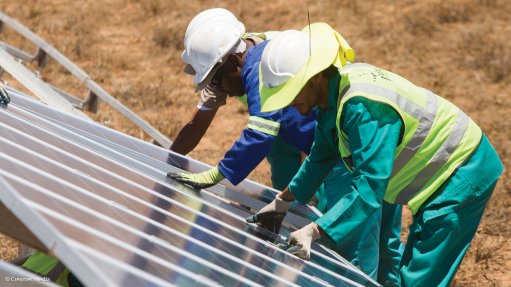Blue Monday or Brew Monday?
It is Monday, January 16, the third Monday of the month and of 2017. Does this day have any significance, you might ask? Well, it is said to be the most depressing day of this year. So, with this Blue Monday out of the way, the remaining days of 2017 should be much better, and future Blue Mondays should be less intense and daunting.
The concept of a Blue Monday was first publicised in a 2005 press release by a travel company called Sky Travel, which it claimed to have been calculated using an equation. The press release was authored by a then tutor at the Centre for Lifelong Learning, a further education centre attached to Cardiff University. The university subsequently issued a press release of its own, distancing itself from the author.
In case you were wondering why a travel company and a tutor ended up as unlikely bedfellows – well, the date was decided on in order to assist Sky Travel in “analysing when people book holidays and holiday trends”. The calculation of the date took many factors into account, including weather conditions, debt levels (the difference between debt accumulated and one’s ability to pay), the time since Christmas, the time since failing one’s new year resolutions, low motivational levels and a feeling of a need to take action. It goes without saying that much criticism has been expressed at the methodology employed in the calculation of this date.
Be that as it may, with the worst day of 2017 behind us, when is the best – happiest – day? Or is that behind us too? Well, as far as that is concerned, there is less certainty, but the good news, at least, is that you have not missed it. The ‘consensus’ is that it is still ahead of us and that it will fall any day between June 21 and 24. Remember to diarise this.
If anything, it can only be better than last year’s June 21, when rioters blocked roads, looted shops and burned vehicles in several areas of the country’s capital, Pretoria, in a show of anger over the selection of the ruling party’s mayoral candidate ahead of the 2016 local elections. At the time, the Mail Online reported that the violence raised concerns about security ahead of the elections, which were held on August 3. The Mail Online reported that, in the past year, violence and vandalism had also hit some universities and schools as students protested high tuition fees and voiced other grievances. Well, never a dull day in South Africa, that’s for sure.
Could January 17 really be the beginning of better and brighter things? As a true economist would answer, “It depends” – it does depend on your perspective.
For four days starting on January 17, the World Economic Forum (WEF) yearly meeting took place in Davos-Klosters, Switzerland. It was the gathering of the who’s who of business leaders and politicians. On the eve of the forty-seventh WEF yearly meeting, as I wrote this article (yes, I was still enduring the worst day of 2017, but only for a few hours more), concern had been expressed that “the heroes of the economy, small business”, was absent from the agenda. Others might have taken issue with this, as on the last day of the meeting, January 20, US President-elect and billionaire business mogul Donald Trump was scheduled to take the oath of office to formally become the forty-fifth President of the country. This event was expected to overshadow the closing remarks at the WEF’s yearly meeting.
Although the UK’s so-called Brexit vote to leave the European Union and Trump’s subsequent election as US President had helped turn 2016 into a turbulent year, one of ‘political earthquakes’, upending conventional wisdom about the global economy, IHS Markit chief economist Nariman Behravesh argues that, ironically, the events in 2016 brightened the outlook.
But just to temper your expectations a little, Behravesh warns of the top ten risks for the international economy, which he cites as follows: the US economy will accelerate, even before any Trump stimulus; Europe’s economic momentum will slow a little, primarily because of Brexit and political uncertainties; Japan’s economy will gain a little traction, thanks to a weaker yen; China’s growth will grind down further, led by a housing construction slowdown; emerging markets will do better, despite recent financial market pressures; commodities prices will continue their upward trend; inflation rates will move up in many parts of the world; US interest rates will keep rising, pulling rates up in some emerging markets; the US dollar will appreciate more; and the level of uncertainty has risen, but the risks of recession remain low.
There is some good news for South Africa should a number of the risks for the inter- national economy come to fruition, and, for fair balance, also some bad news. But then that is life. You have to take the good with the bad.
In a time of such political change and uncertainty, it was quite disappointing that President Jacob Zuma did not lead the South African delegation to the WEC yearly meeting, a decision that was under- stood to have been made at the last minute – the very last minute. The South African delegation, attending the WEF yearly meeting under the banner of Brand SA, a joint marketing partnership between government and business, was led by Deputy President Cyril Ramaphosa and included Finance Minister Pravin Gordhan, Minister in the Presidency for Planning, Monitoring and Evaluation Jeff Radebe, Trade and Industry Minister Dr Rob Davies, Economic Development Minister Ebrahim Patel, Water Affairs and Sanitation Minister Nomvula Mokonyane and Sihle Zikalala, the KwaZulu-Natal African National Congress chairperson and MEC for Economic Development, Tourism and Environmental Affairs.
According to City Press, the Economic Development Department prepared a report on South Africa’s economic ‘performance’ in 2016 that was to be circulated at the WEF yearly meeting. The newspaper reported that it understood that, “in the report, [the department] states that South Africa experienced a tough year, but that a recession was averted, thanks to a collective effort between government, the business sector and unions”. This was against the backdrop that, on January 11, ratings agency S&P Global had warned that South Africa was at risk of a downgrade. Let us trust that South Africa’s worst day for 2017 is behind it too, but, somehow, this seems to be in the hands of the international rating agencies.
Just in case you were confused by this article’s title, ‘Blue Monday or Brew Monday?’ – in an initiative in the UK to counter the effects of Blue Monday, a campaign was launched that urged those experiencing a specifically bad day to call on their friends and to go out for a strong, hot brewed coffee. Knowing the British, they might well – I have little doubt – rather consume a stronger, and cooler, brew to take leave of January 16.
Comments
Press Office
Announcements
What's On
Subscribe to improve your user experience...
Option 1 (equivalent of R125 a month):
Receive a weekly copy of Creamer Media's Engineering News & Mining Weekly magazine
(print copy for those in South Africa and e-magazine for those outside of South Africa)
Receive daily email newsletters
Access to full search results
Access archive of magazine back copies
Access to Projects in Progress
Access to ONE Research Report of your choice in PDF format
Option 2 (equivalent of R375 a month):
All benefits from Option 1
PLUS
Access to Creamer Media's Research Channel Africa for ALL Research Reports, in PDF format, on various industrial and mining sectors
including Electricity; Water; Energy Transition; Hydrogen; Roads, Rail and Ports; Coal; Gold; Platinum; Battery Metals; etc.
Already a subscriber?
Forgotten your password?
Receive weekly copy of Creamer Media's Engineering News & Mining Weekly magazine (print copy for those in South Africa and e-magazine for those outside of South Africa)
➕
Recieve daily email newsletters
➕
Access to full search results
➕
Access archive of magazine back copies
➕
Access to Projects in Progress
➕
Access to ONE Research Report of your choice in PDF format
RESEARCH CHANNEL AFRICA
R4500 (equivalent of R375 a month)
SUBSCRIBEAll benefits from Option 1
➕
Access to Creamer Media's Research Channel Africa for ALL Research Reports on various industrial and mining sectors, in PDF format, including on:
Electricity
➕
Water
➕
Energy Transition
➕
Hydrogen
➕
Roads, Rail and Ports
➕
Coal
➕
Gold
➕
Platinum
➕
Battery Metals
➕
etc.
Receive all benefits from Option 1 or Option 2 delivered to numerous people at your company
➕
Multiple User names and Passwords for simultaneous log-ins
➕
Intranet integration access to all in your organisation


















